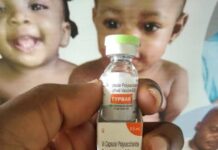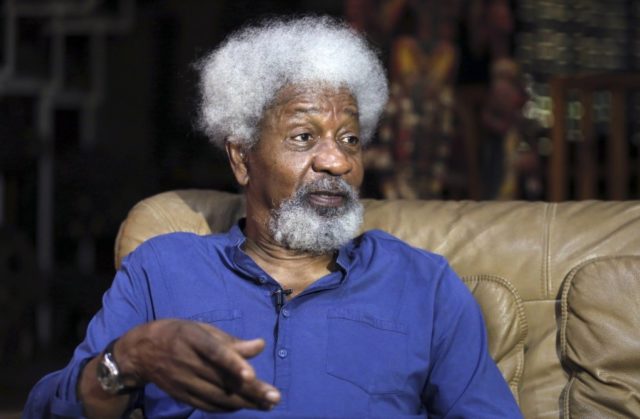Wole Soyinka opens up on his battle with prostate cancer.
How I survived prostate cancer – Wole Soyinka
Nobel laureate and renowned dramatist, Wole Soyinka has revealed that he was diagnosed with early-stage prostate cancer in 2014.
BBC Life Clinic’s Charles Mgbolu met him at his village in Ogun state in south-west Nigeria and heard his story of resilience and determination, but also the crucial role his wife played in the process.
Speaking to BBC, Soyinka revealed that he used an advanced technology, ‘proton therapy’ to treat it.
According to the 85-year-old, the treatment was an ‘easy ride although uncomfortable.
He said “It hadn’t yet gotten to the stage where it was non-reversible and so (the doctor) gave us a number of guidelines. I say us because he wanted to make sure that my wife made sure that I followed it. He sensed that I wasn’t going to be a very good patient. So he spoke to her most of the time rather than me,” he said.

”There is no disease in the world any human being needs to be ashamed.
I don’t see why people need to go to Canada, Europe to receive treatment which is affordable in this nation, it is a shame.
”The options I compared to other treatment I know about and I have seen in operation. Mine for me was an easy ride, uncomfortable in many ways but it is painless.”
That was five years ago. Since then, after undergoing successful treatment, the 85-year-old is in good health.
The professor says he takes pretty good care of himself and loves spending time outdoors.
Theprostateis a walnut-sized gland located between the bladder and the penis. Theprostateis just in front of the rectum. The urethra runs through the center of the prostate, from the bladder to the penis, letting urine flow out of the body. The prostate secretes fluid that nourishes and protects sperm.
Prostate cancer is a leading cancer diagnosis and cause of cancer related deaths among men. It is the most commonly diagnosed cancer among Nigerian men with an estimated hospital prevalence of between 127 to 185.5 per 100,000 male admissions in the hospital.
Source: BBC





















